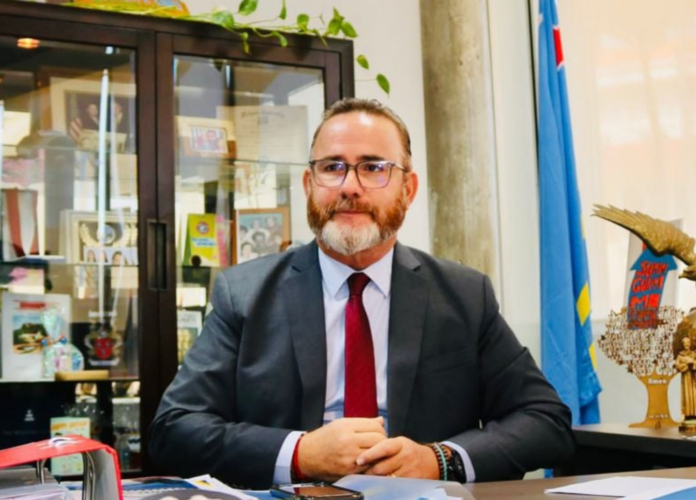On Friday, May 24, 2024, during a formal meeting of the Council of Ministers, the request of Minister Glenbert Croes was approved to allow the state-owned company, Aruban Oil Company, to close a contract with the company Armstrong Oil & Gas Inc. to explore if there could be gas and/or oil in the seabed around our island. This decision came after a thorough evaluation by the government, seeking additional advice and considering the proposition of the American company, which is convinced that there may be gas or oil at the bottom of the sea.
For Minister Glenbert Croes, this is a significant achievement because the approval entails a multimillion-dollar investment by the company. A team of experts will need to be established here, rent offices, accommodations, heavy equipment that will be brought into the sea, and so on. All work will happen under the coordination and supervision of the Aruban Oil Company.
On the other hand, oil exploration is a significant job that remains the responsibility of the exploring company. What has been agreed upon in advance is how the ownership will be divided if gas or oil is found, with the government always remaining the majority owner. All efforts that can create job opportunities and have a positive effect on our investment climate, tied to economic development, and possibly create a new economic pillar for our country, are welcome.
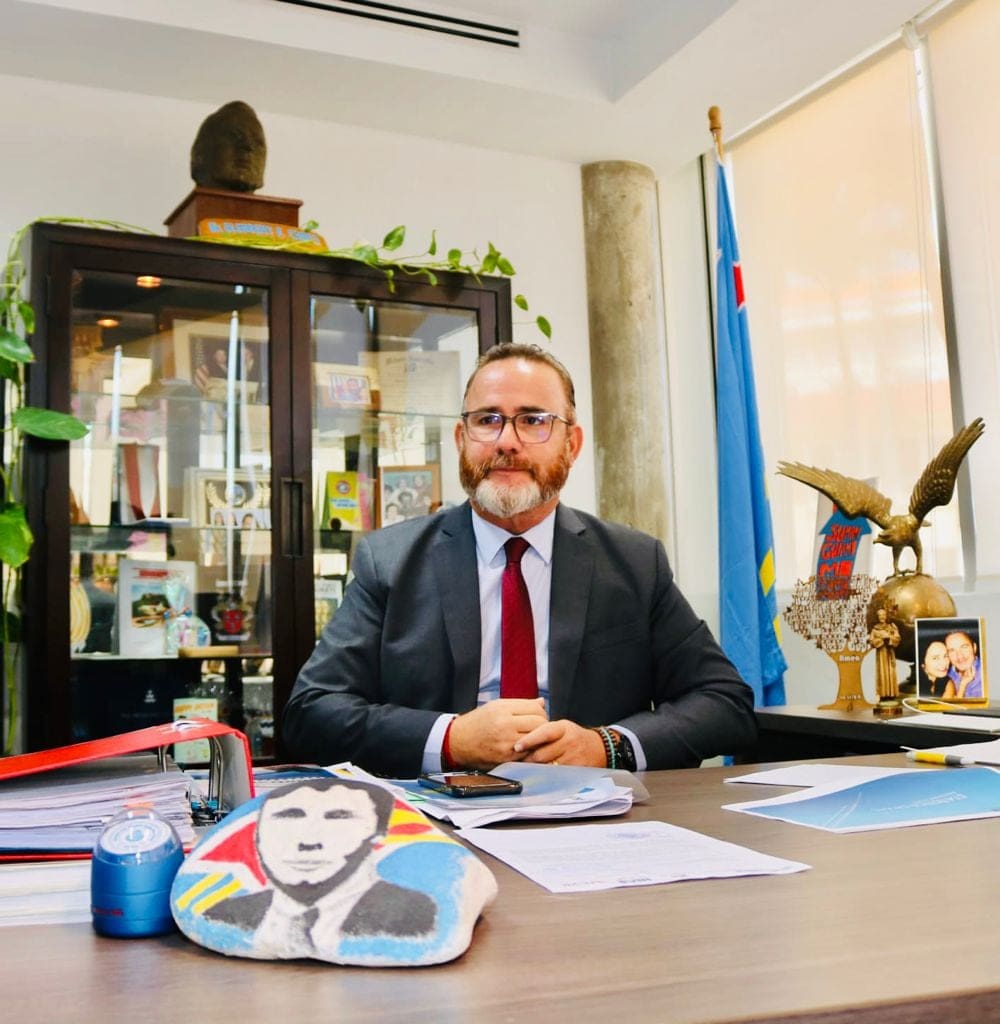
Who is Armstrong Oil & Gas Inc.?
In 1985, William “Bill” Armstrong founded Armstrong Oil & Gas Inc. (AOG), a private oil and gas exploration company, headquartered in Denver, Colorado, USA. They specialize in exploring large oil and gas fields and currently focus heavily on Alaska. AOG is known for discovering several large oil fields, with over 100 million barrels, including the one with 2.5 billion barrels at Pikka in the northern part of Alaska.
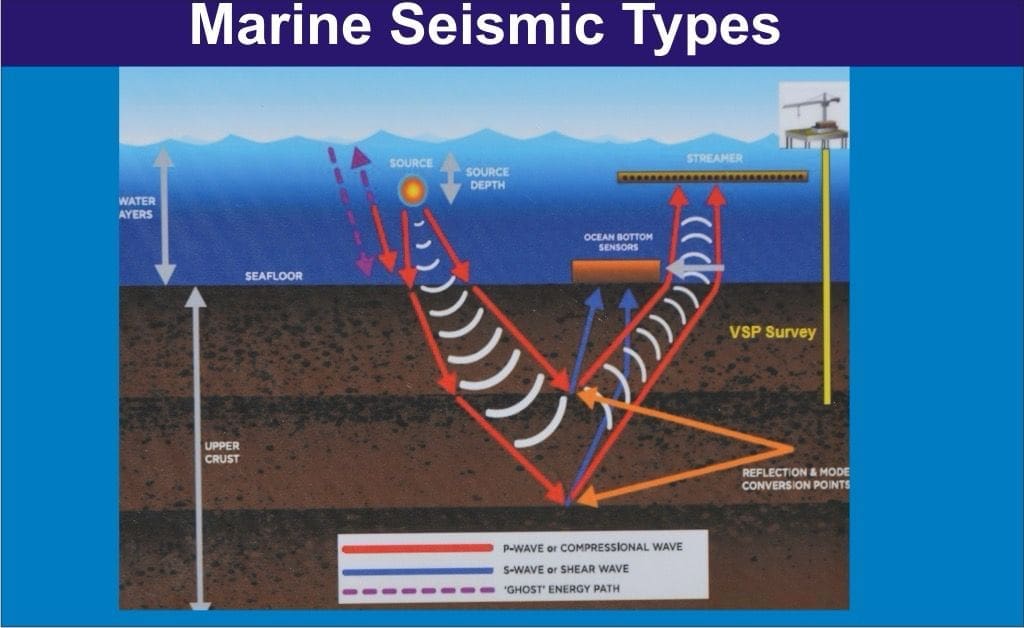
Good track record
In the last three decades, AOG has been involved in discovering over a dozen new oil fields, producing billions of barrels. AOG has also worked in The Williston Basin, The Powder River Basin, The Wyoming/Utah Overthrust Belt, The Michigan Basin, The Cook Inlet, The Gulf of Mexico, and not to forget The San Joaquin Valley.
AOG shares its geological and geophysical expertise in discovering oil and gas by forming alliances with other major American and international companies, such as Repsol, Exxon, Chevron, Eni, Anadarko, Pioneer, Santos, Kerr McGee, and several others.
The mission of AOG is to explore and exploit hydrocarbons, both on land and in the sea, while meeting the highest standards of safety and environmental protection. Not long ago, the company decided to expand internationally by creating a subsidiary company called Armstrong International LLC. This included a specialized team of experienced experts with a successful track record to seek new opportunities… just like this one in Aruba.
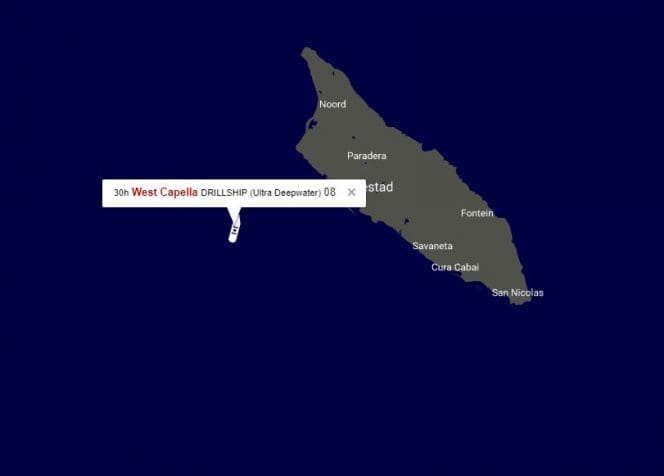
The plan to explore in Aruba
Armstrong International LLC conducted a technical evaluation, which lasted about three to four months, and confirmed that there is significant potential for hydrocarbons in the sea around Aruba. After confirming this, they requested the Government of Aruba to grant them the necessary areas to explore and exploit in an attempt to reach oil and/or gas in our soil. The fact that they are here in Aruba is because, according to their calculations and considering they found gas at Perla, near the coast of Aruba but in Venezuelan waters, they are sure that there must be one or more possibilities around Aruba too!
Aruba will benefit if there is something
In the agreement now closed between Armstrong International LLC and the Aruban Oil Company (CAP), it is stated that, according to local laws, the American company will seek financing for the research and exploration process. However, CAP will actively participate in the project as a “key stakeholder” in exploration, perhaps developing into a commercial activity, in case it manages to discover oil and/or gas at the seabed. How the share will be, is unknown to us, but generally, the country earns more from sales.
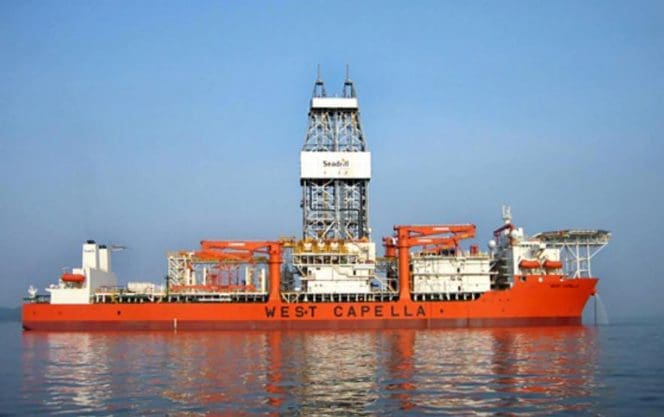
It will start drilling here in two years
The goal of Armstrong International LLC is to implement an accelerated exploration program. They will first conduct a 3D seismic survey to identify potential areas where oil may be present. And if everything goes well, they plan to start drilling the first hole, two years after signing the contract, so it will be around 2026. The company is sure that the team they will send to Aruba has extensive experience in managing successful projects. They will set up a safe and efficient operation on our island, negotiating all the necessary contracts and executing the project as quickly as possible.
The project has several phases
According to our sources, the project will be divided into several phases. The first two months, August and September 2023, were used to negotiate with CAP and the Government of Aruba. That is now behind us. The next phase began in November 2023 and lasted until February 2024, where technical aspects were evaluated for the 2D seismic. Between April and the end of July 2024, work was carried out on the 3D seismic Acquisition. Simultaneously, between May and July 2024, there was a program to hold a public tender to select which company will work with them to do the seismic work in the sea in Aruba. In September, a ship will be mobilized to Aruba, which will perform the seismic research work, scheduled to take place between October and December. Between January and June 2025, all seismic research done in the sea will be processed. A program is scheduled between October 2025 and January 2026 to make the decision whether to drill or not. If the decision is positive, then in January 2026, the operational base will be set up at sea. And if there are no setbacks, it is hoped that drilling for gas and/or oil will start in April 2026. This will last until June 2026.
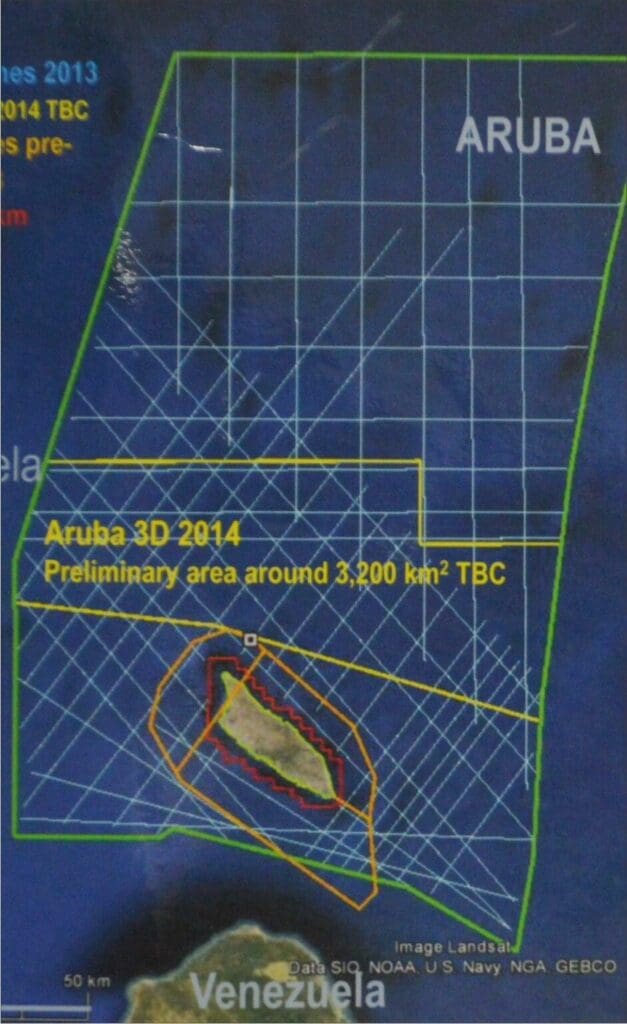
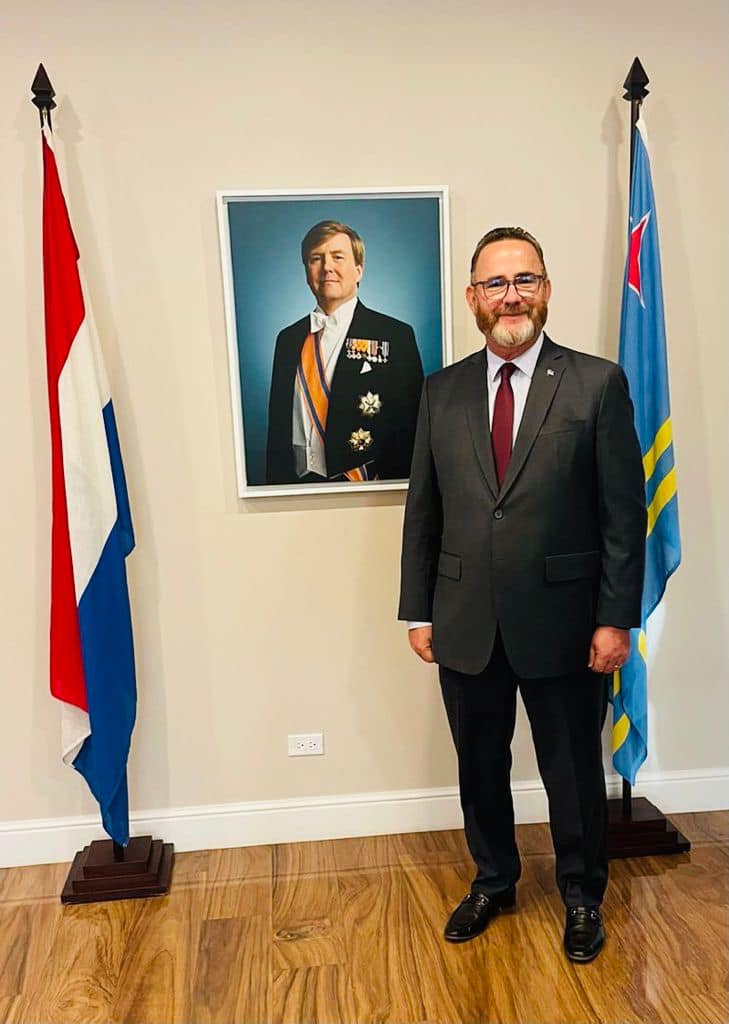
Repsol has already explored Aruba
Not too long ago, in 2018, the company Repsol explored a hole around our island. At that time, a partnership was formed between the Spanish company Repsol and the French company Total. It should be mentioned that both companies were convinced that there is oil and gas at the seabed. But, of the five holes they discussed, which they indicated could possibly have gas and/or oil, they only drilled the first one. Total had a preference while Repsol thought differently. In the end, they went behind Total’s “gamble” and gave in, and ended drilling a “dry hole.” This caused both companies to be angry with each other, and Total withdrew from the consortium, and Repsol did not want to continue alone in the exploration. Altogether, they invested about 80 million dollars in this project, which was part of research and exploration.
Repsol stopped working with Aruba three years ago
It was on January 6, 2020, when the Government of Aruba officially announced that the Aruban Oil Company (CAP) had been informed by Repsol that they were discontinuing the gas and oil exploration project in Aruba. Repsol had notified CAP at that time that they would not proceed with phase #4 of the agreement signed with CAP. This agreement was signed in December 2012 and concluded on November 30, 2019, after seven years of exploration. The decision to halt the project came after finding nothing when they drilled the first hole, called “Bon Bini-1X,” located in the northern part of Aruba, which turned out to be a dry hole. This result was related to the seismic research conducted between 2014-2015. At that time, it was decided to reevaluate the other holes that they still believed could be prospects for gas or oil but since Repsol did not find a suitable partner to form a consortium and share the high costs involved in the exploration process, with this in mind, it was decided to pull the plug.


